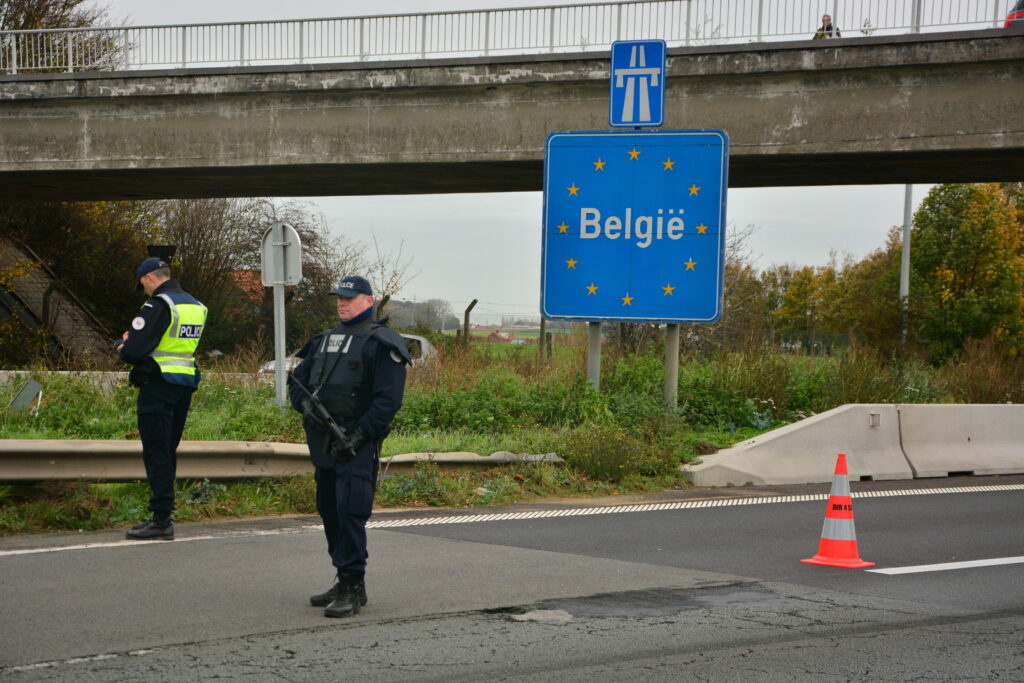France has decided to temporarily reintroduce checks at its borders, including the one with Belgium, due to several "security threats".
The Schengen area is a trademark symbol of the European Union (EU), enabling more than 400 million people to travel freely between member countries without passing through border control. However, France has now decided to implement a measure that will limit this freedom.
As EU leaders are currently meeting in Brussels for a summit heavily focused on migration, France has informed the European Commission that it will reinstate checks at all its land, air and sea borders with Luxembourg, Belgium, Germany, Switzerland, Spain and Italy from 1 November 2024 until the end of April 2025.
The Commission's Schengen Borders Code allows EU Member States to temporarily reintroduce border control at the internal borders "in the event of a serious threat to public policy or internal security." However, it notes that this measure must only be applied as a last resort and in exceptional situations. In its explanation to the Commission, France points to "serious threats to public policy, public order, and internal security posed by high-level terrorist activities."
It also highlighted a perceived growing presence of criminal networks facilitating irregular migration and smuggling, and "migration flows that risk infiltration by radicalised individuals," as well as the "irregular crossings" on the Channel and North Sea borders. Finally, it points to "rising violence among migrants, particularly in northern coastal areas such as Dunkirk and Calais, leading to tense and dangerous situations involving both migrants and law enforcement."
Questionable effectiveness
The Commission has stressed that the duration of such a temporary reintroduction of border control must be restricted "to the bare minimum needed to respond to the threat in question." While it can issue an opinion regarding the Member State's decision to reinstate border control, the Commission cannot veto it.
France is not the first EU country to take this step. In mid-September, Germany reintroduced temporary border checks including at its borders with France and the Netherlands in an effort to "combat irregular migration and cross-border crime."
Austria also reintroduced checks from Wednesday this week, referring to "risks associated with irregular migration, such as via the Balkan routes, migratory pressure in the pre-frontier area, and the strain on the asylum reception system and basic services," among others. Denmark will follow suit at its borders with Germany from 12 November for the same reasons.
The measure has been criticised as a "racist move", and sparked concern among migration experts who argue that it puts the right to seek asylum in peril. Experts have also questioned the long-term effectiveness of border controls, noting that they are more symbolic than substantive, Reuters reported. "The signal is deterrence, an attempt to demonstrate the ability to act," said Hans Vorlaender, chair of Germany's expert council on integration and migration.
Research by experts such as the VUB's Omar Cham and Hein de Haas has repeatedly shown that migrant deterrence measures and stricter policies under the guise of decreasing the number of migrants arriving in countries have little to no effect on the influx.

